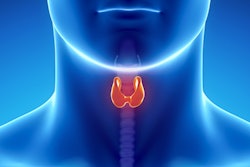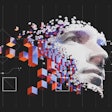
Our next destination on the Road to RSNA is a stop in artificial intelligence (AI) for a preview of this year's presentations on AI in medical imaging, including machine learning, deep learning, and computer-aided detection/diagnosis (CAD/CADx).
If you thought AI had taken off at RSNA 2016, you haven't seen anything yet. RSNA 2017 will feature more than 100 presentations in the seven dedicated sessions focused on AI, as well as throughout the scientific program. What's more, AI will also be featured in a bevy of hot topic sessions, refresher courses, scientific posters, and educational exhibits.
A key trend will be the use of AI techniques along with quantitative features of images (i.e., radiomics) to gain new insights on diseases. For example, presenters will discuss how AI can exploit tumor imaging features to predict the survival of patients with metastatic colon cancer, bladder cancer, or gliomas. AI algorithms were also found to be useful for assessing the malignancy risk of lung nodules on low-dose chest CT and predicting the invasiveness of lung adenocarcinoma.
Other scientific sessions will describe how AI can improve the performance and utility of current imaging modalities, including assessing cardiovascular risk on routine chest CT exams, improving the specificity of coronary CT angiography for functionally significant stenosis, and providing real-time coronary artery calcium scoring. In addition, AI can also help find lung nodules on chest x-rays and aid in the challenging diagnosis of Crohn's disease.
A number of studies will explore the potential of AI for enhancing the care of acute ischemic stroke, including determining the onset of stroke symptoms and guiding treatment decisions. Those who travel to the Windy City will also be able to learn how AI can offer value by identifying imaging cases that need priority review by a radiologist, such as patients with large pneumothoraces or malpositioned feeding tubes.
The "black box" nature of AI is often cited as a barrier to implementation in radiology. Notably, a few presentations at McCormick Place will explain how AI algorithms can generate "heat maps" that can show radiologists the areas of an image that led to its diagnosis or findings.
See below for our previews of select AI-related scientific sessions at RSNA 2017. Of course, these are just a sample of the AI content planned for the meeting. For more information on those talks, as well as other abstracts in this year's scientific and educational program, click here.
If you haven't already, please also check out our related Road to RSNA Imaging Informatics Preview for our coverage of PACS, cybersecurity, clinical decision-support, radiation dose-monitoring software, structured reporting, analytics, and issues regarding patient access to radiology results. Our Advanced Visualization section on November 8 will highlight 3D and augmented/virtual reality topics, while IT talks related specifically to women's imaging topics will be featured in our upcoming Women's Informatics Preview.




















